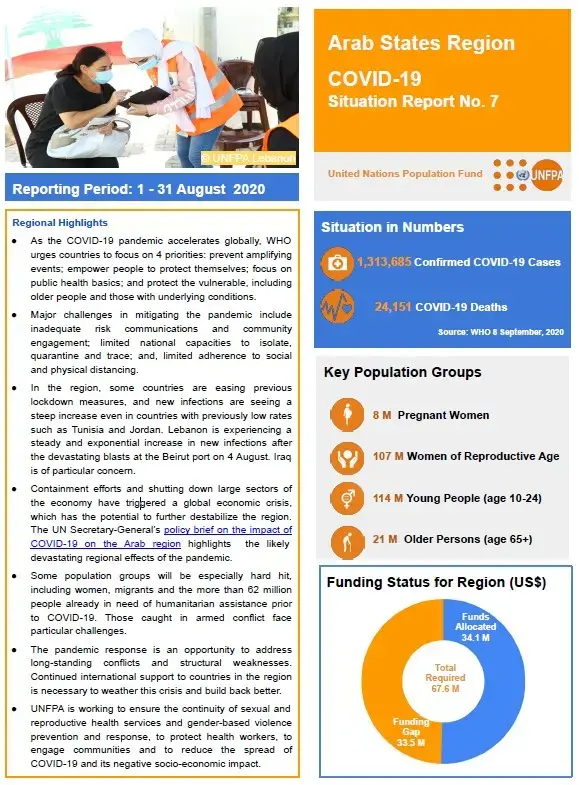Regional Highlights
- As the COVID-19 pandemic accelerates globally, WHO urges countries to focus on 4 priorities: prevent amplifying events; empower people to protect themselves; focus on public health basics; and protect the vulnerable, including older people and those with underlying conditions.
- Major challenges in mitigating the pandemic include inadequate risk communications and community engagement; limited national capacities to isolate, quarantine and trace; and, limited adherence to social and physical distancing.
- In the region, some countries are easing previous lockdown measures, and new infections are seeing a steep increase even in countries with previously low rates such as Tunisia and Jordan. Lebanon is experiencing a steady and exponential increase in new infections after the devastating blasts at the Beirut port on 4 August. Iraq is of particular concern.
- Containment efforts and shutting down large sectors of the economy have triggered a global economic crisis, which has the potential to further destabilize the region. The UN Secretary-General’s policy brief on the impact of COVID-19 on the Arab region highlights the likely devastating regional effects of the pandemic.
- Some population groups will be especially hard hit, including women, migrants and the more than 62 million people already in need of humanitarian assistance prior to COVID-19. Those caught in armed conflict face particular challenges.
- The pandemic response is an opportunity to address long-standing conflicts and structural weaknesses. Continued international support to countries in the region is necessary to weather this crisis and build back better.
- UNFPA is working to ensure the continuity of sexual and reproductive health services and gender-based violence prevention and response, to protect health workers, to engage communities and to reduce the spread of COVID-19 and its negative socio-economic impact.


